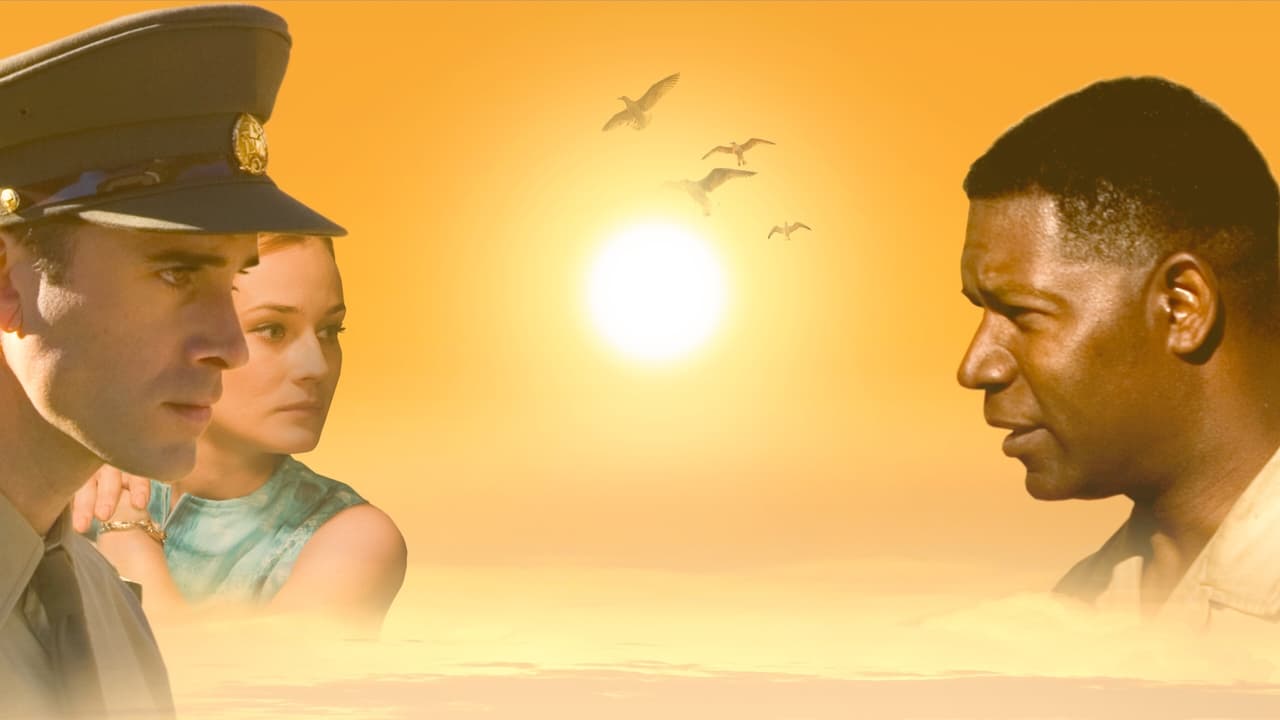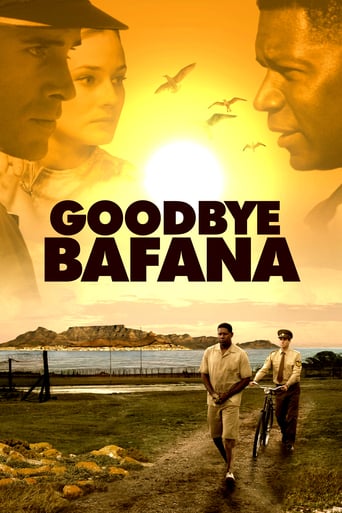



Very very predictable, including the post credit scene !!!
View MoreThis is How Movies Should Be Made
one of my absolute favorites!
The story, direction, characters, and writing/dialogue is akin to taking a tranquilizer shot to the neck, but everything else was so well done.
View MoreOriginally I saw this film and thought "wow, Madiba! What a great fella he was in the face of that awful apartheid system and the unjust imprisonment he received just for being black....in Africa!" Since I was born in 1984 I had no memory of Mandela or SA so I just accepted the default narrative like everyone else. Then I started researching the people and events. That's when my perceptions truly changed and a broader picture formed. Boers were the first to settle the land they are now being forced to forfeit sans compensation. Land deals, alliances, etc allowed them the real estate to transform empty, valueless land into an economic powerhouse, the only of its kind on the continent. Apartheid was a system established for the problem of illegal immigration that morphed into something else and flamed by the media and liberals to become something of worldwide significance.As for Mandela, TERRORIST! Cut and dry. He signed off on over 50 bombings that killed thousands. He should have been put to death when he was convicted. His great honor and all that bluster is so irrelevant when you are fomenting, complicicit in, and responsible for the murder of thousands. His fat ass wife was even worse. Then the genius took power and further wrecked the country in a reign of Obama like ineptitude and incompetence masked in oratory skills. This is pure propaganda and kinda leaves out the most important details because this is pure fiction. Alfa guy Pedro or Pepe or whatever his name is does a decent job of playing this fictional noble, compassionate, thoughtful, peaceful mass murdering radical terrorist.
View MoreThis film would have been easier to watch if the makers had cast a total unknown in the role of Mandela. I like Dennis Haysbert; he's a good actor, but he was miscast in the part of Nelson Mandela. There's a point in the film when Joseph Feinnes, in character, does a brief imitation of Mandela making a public statement; he does a very convincing job of it, and I thought:"This white guy would have made a better Nelson Mandela than we have here". Do the producers think that any black actor equals any other black actor? Why not place some South African character actor with a long, distinguished portfolio in the Mandela role? It seems obvious to me. Why go all the way to Hollywood for someone who's clearly wrong for the part? It's not a bad film-the motivation is clear, the pacing is OK, it held my interest...it just didn't present a convincing Nelson Mandela.
View MoreNelson Mandela plays an important part in "Goodbye Bafana", but it is not a biography of Mandela. (There is, potentially, a great film to be made on that subject). Rather, it is an example of history seen through the eyes of an ordinary man who unexpectedly finds himself playing a significant role. James Gregory is a white South African prison guard. He grew up on a remote farm where his only companions of his own age were African boys, and as a result he learnt to speak fluent Xhosa. (The "Bafana" of the title was a friend of Gregory's during his childhood). This ability has made him useful to his superiors. He is transferred to Robben Island, the government's high-security prison for black political prisoners, where he is put in charge of censoring the prisoners' mail and monitoring their conversations with visitors to ensure that they do not discuss forbidden (i.e. political) topics. The film follows Gregory's career and his political development from the sixties to the end of apartheid in the early nineties. At the beginning of the film, he is portrayed as an enthusiastic supporter of the apartheid regime who believes in the superiority of the white race and who accepts racial discrimination as part of the natural order of things. As time goes on, however, his views start to change, partly as a result of the violence he sees directed by the South African police and security forces against the black population, partly because he has come to admire Mandela and the other Black political leaders. Whereas he once despised them as Communist terrorists, he now sees them as men fighting to right the injustices which their people have suffered. This shift in his political outlook makes Gregory unpopular with other white South Africans, especially his colleagues who regard him as a "kaffir lover", and even leads to strains in his marriage. Gregory's wife Gloria is more conservative than him in her unthinking support for apartheid. Her main concerns, however, are not with politics, but rather with furthering her husband's career, and cannot understand why he is putting his prospects at risk with his political stance. There is little in the way of action in this film- we hear about the "liberation struggle", but for the most part we do not see it. It is rather a film of ideas, with the most important drama being the one taking place inside Gregory's head. The problem is that Gregory's transformation from reactionary racist to enlightened liberal seems perhaps too predictable. There doubtless were white South Africans, including members of the prison service, who continued to hold unreconstructed white supremacist views up until the end of apartheid (and in some cases even beyond), but it is unlikely that a feature film would ever be made these days chronicling the life and opinions of such individuals, so we know from the outset that Gregory's views will undergo a complete change in the course of the film. Dennis Haysbert was very good in "Far from Heaven", but here as Mandela he seems less a living individual than an iconic symbol of dignity and nobility. The German actress Diane Kruger seemed miscast as Gloria. Although she seemed more at home with the English language than she did in "Troy", her accent often sounded more British than South African. (Joseph Fiennes's accent, by contrast, sounded very convincing to my non-South African ears). She also seemed too young in the latter part of the film, when Gloria is supposed to have aged nearly thirty years since the opening scenes. Despite these reservations, I enjoyed the film, mostly because of Fiennes's excellent performance as Gregory. He is a basically decent man trying to come to terms with the fact that the ideology to which he has committed himself is morally bankrupt and the political system which it supports is, in the long term, unsustainable. (Although the apartheid government had always stigmatised its opponents as "Communists", it is one of the ironies of history that in the eighties and early nineties the South African Nationalists and the Soviet Communists began to find themselves in similar positions. There must have been many basically decent Russians during the Gorbachev years who faced precisely the same dilemma as Gregory). The film's political stance may be a predictable one, and it may be telling a familiar story, but its message is one of hope and humanity. 7/10
View MoreGoodbye Bafana is a touching, thought-provoking movie. Extremely well acted, I loved Joseph Fiennes (James Gregory) and Dennis Haysbert (Nelson Mandela) in their roles, and Diane Kruger (Gloria Gregory) did well, too. The movie has the slow, a bit mysterious charm in it, as August's movies usually do. The color scheme was like African dust, diluted, sometimes almost raw in the scorching sun. Music supported various scenes very well, without being too prominent.The movie starts when a young prison warden James Gregory arrives to Robben Island 1968 and is addressed to keep an eye on Nelson Mandela, who is being imprisoned there for his political views. Gregory gets this mission, because he speaks xhosa, the local language, and therefore is able to read (and censor) the correspondence in and out of the prison, as well as understand what the prisoners talk to each other.James Gregory is a faithful supporter of apartheid. He believes these black men are behind bars for a good reason and he supports the government politics. After he and his family witness a raid in a busy street, where black people are randomly harassed, Gregory has to answer the questions of his children - and his explanations sounded shallow even in his own ears. Very slowly, over the years, he became to see through the apartheid and change his views.Dennis Haysbert was chosen to the role of Mandela, because of his quiet, distinctive charm and mental power. He did a great job. Joseph Fiennes was chosen because Bille August wanted an actor, who was tough and yet sensitive, someone who would be able to portray the change in the character in a period of almost thirty years. It was a very challenging role but Joe did a marvelous job.There has been a lot of talk about his South African accent, and mostly it has been praised. I followed it very closely, and I think Joe did fine in that area, too. In some scenes the British accent is more or less audible, but most of the time he does a wonderful job.Diane Kruger did a good job as James's wife, a mother of two, who was also raising their kids to support the apartheid. She opposed her husband being a warden for Nelson Mandela, because she could see that the close contact with the inmate made cracks to James's shield and his racistic opinions were vanishing rapidly. She tried to hold onto the apartheid views for much longer than her husband.The movie ends to a year 1990, when Nelson Mandela is released from prison after being incarcerated for 27 years. The era of the new South Africa was to begin.
View More